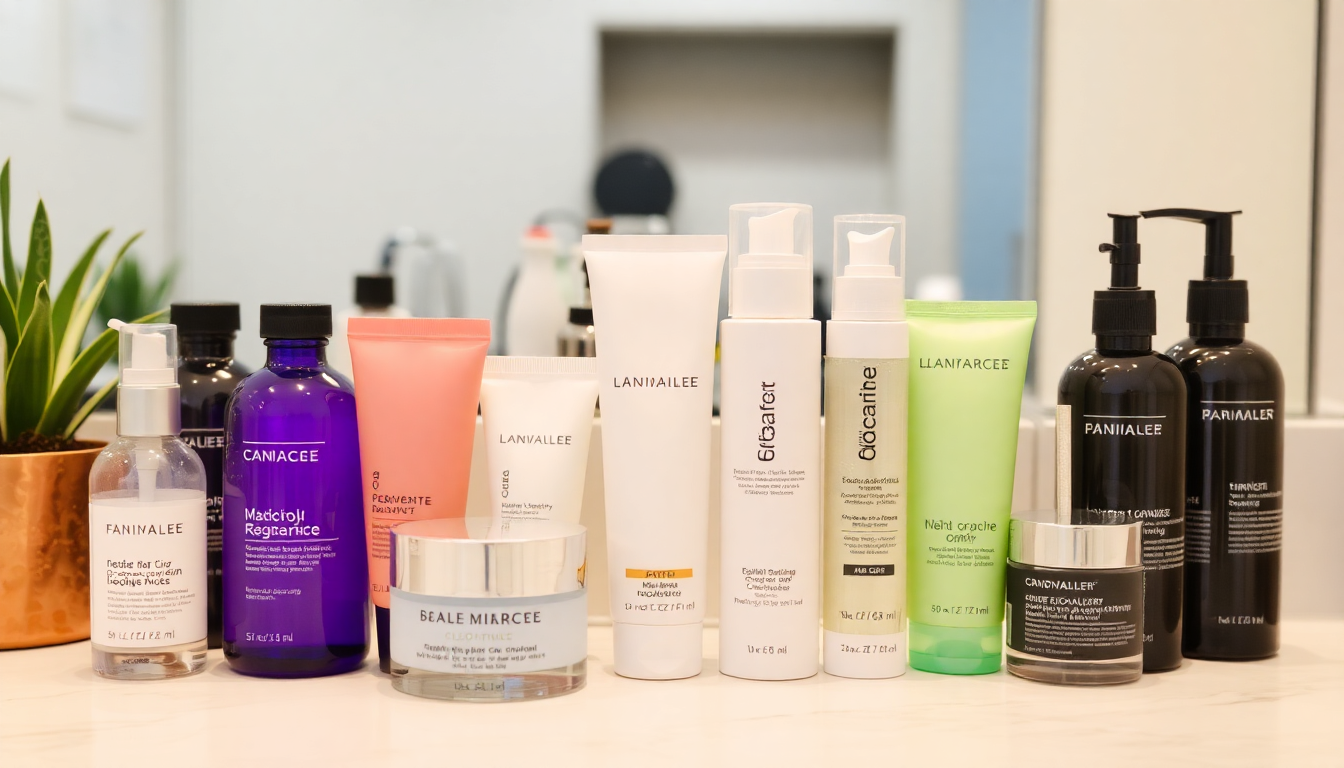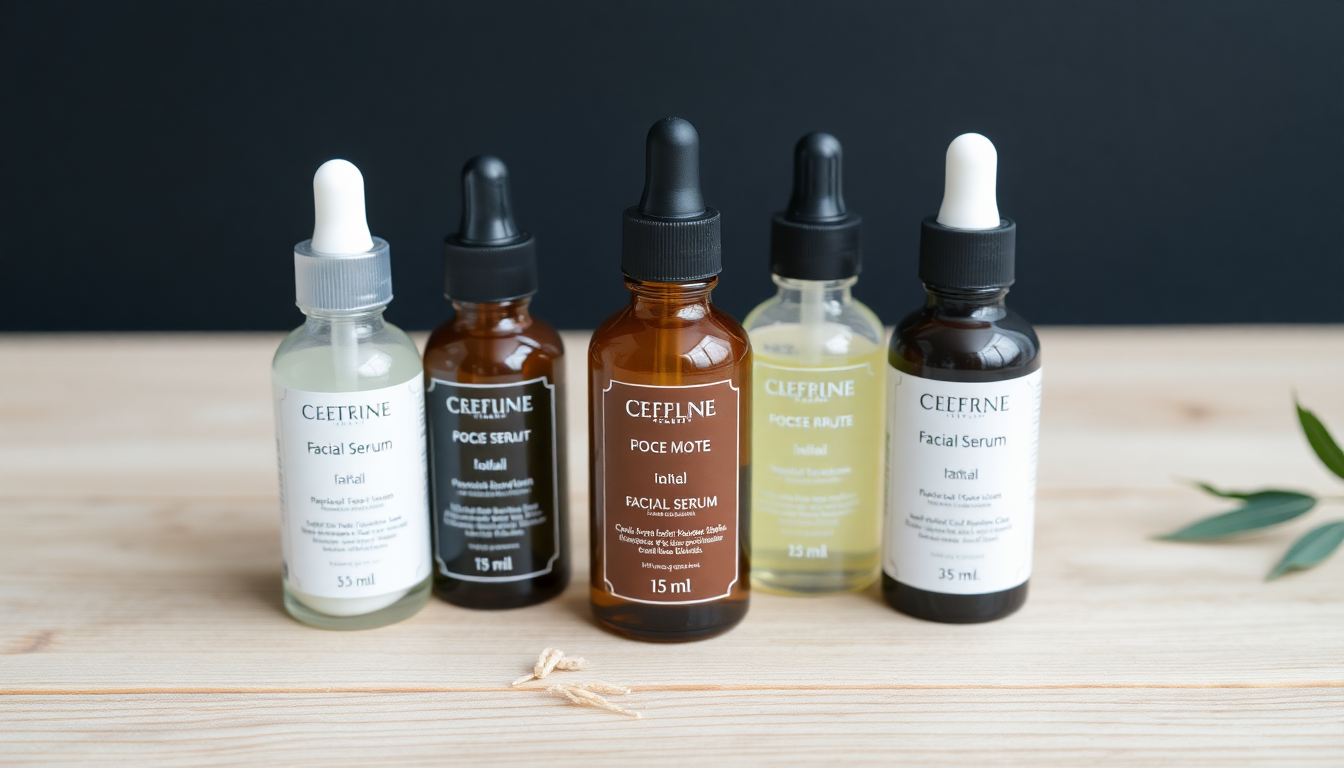Introduction
Achieving radiant and healthy skin is a common goal for many individuals. The quest for glowing skin often leads us to explore various skincare products, and one essential item that has gained significant attention in recent years is the facial serum. These potent formulas are designed to address specific skin concerns and can drastically improve the overall appearance of your complexion. In this article, we will delve deep into the benefits of incorporating a facial serum into your daily skincare routine, ensuring you unlock the secret to achieving radiant skin.
What is a Facial Serum?
Facial serums are lightweight, fast-absorbing liquids that contain a high concentration of active ingredients. Unlike traditional moisturizers, which primarily focus on hydration, serums are formulated to penetrate deeper into the skin, delivering nutrients and addressing specific skin issues. They often have a thinner consistency, allowing for quick absorption without leaving a greasy residue. This unique formulation makes serums an ideal addition to your skincare routine, providing targeted treatment for various skin concerns.
The Science Behind Facial Serums
Understanding the science behind facial serums helps to appreciate their benefits fully. The active ingredients in serums, such as antioxidants, peptides, and vitamins, work at a cellular level to promote skin health. For example, antioxidants like Vitamin C neutralize free radicals that can lead to premature aging, while peptides stimulate collagen production, enhancing the skin's elasticity. The combination of these ingredients aids in repairing damage, improving texture, and promoting a more youthful appearance.
Benefits of Incorporating a Facial Serum
- Deep Hydration: Many serums contain hyaluronic acid, a powerful humectant that can hold up to 1000 times its weight in water, ensuring your skin remains hydrated and plump. This deep hydration helps to minimize the appearance of fine lines and wrinkles, giving your skin a more youthful appearance.
- Targeted Treatment: Serums can be formulated to address specific skin issues such as aging, pigmentation, acne, or dullness. For instance, if you're struggling with hyperpigmentation, a serum containing Vitamin C or niacinamide can significantly improve your skin tone.
- Enhanced Absorption: Using a serum before your moisturizer can help your skin absorb more moisture and nutrients, maximizing the benefits of your entire skincare routine. The lightweight nature of serums ensures that they penetrate deeply into the skin, allowing subsequent products to work more effectively.
- Lightweight Formulation: The lightweight nature of serums makes them suitable for all skin types, including oily and combination skin. Unlike heavier creams, serums provide hydration without clogging pores or feeling greasy, making them ideal for everyday use.
- Boosted Radiance: Regular use of facial serums can lead to visibly brighter skin, promoting a healthy glow. Ingredients like Vitamin C and glycolic acid help to exfoliate the skin, revealing a more luminous complexion beneath.
- Anti-Aging Properties: Many serums are designed with anti-aging benefits in mind. Ingredients such as retinol and peptides encourage cell turnover and collagen production, which can lead to firmer, smoother skin over time.
- Improved Skin Texture: Serums can help refine skin texture, reducing the appearance of pores and unevenness. Regular use can lead to a more polished and even skin surface.
Choosing the Right Facial Serum
With a variety of serums available on the market, it's essential to select one that aligns with your skin's unique needs. Here are some key ingredients to look for:
- Vitamin C: Known for its brightening properties, Vitamin C helps reduce dark spots and evens skin tone. It also provides antioxidant protection against environmental stressors.
- Retinol: A powerful anti-aging ingredient that promotes cell turnover and reduces fine lines. Retinol can also help improve skin texture and tone.
- Niacinamide: This ingredient is great for minimizing pores and controlling oil production. It also has anti-inflammatory properties, making it suitable for sensitive skin.
- Peptides: Peptides help to boost collagen production for firmer skin. They also assist in repairing the skin barrier and improving overall texture.
- Hyaluronic Acid: A must-have for deep hydration, hyaluronic acid attracts moisture to the skin, keeping it plump and hydrated.
- Salicylic Acid: Ideal for acne-prone skin, salicylic acid helps to exfoliate and unclog pores, reducing breakouts.
- Glycolic Acid: An alpha hydroxy acid (AHA) that exfoliates the skin's surface, promoting cell turnover and revealing a brighter complexion.
How to Incorporate a Serum into Your Routine
To reap the maximum benefits of your facial serum, follow these simple steps:
- Start with a Clean Face: Cleanse your skin thoroughly to remove any dirt, makeup, or impurities. A clean canvas allows the serum to penetrate more effectively.
- Apply a Toner (Optional): Using a toner can help prep your skin for better serum absorption. Toners can balance the skin's pH and provide an extra layer of hydration.
- Dispense a Small Amount: Take a small amount of serum (usually a pea-sized amount is sufficient) and dispense it onto your fingertips.
- Apply Gently: Gently massage the serum into your face and neck using upward and outward motions. This technique promotes circulation and ensures even distribution.
- Follow with a Moisturizer: After applying the serum, seal in its benefits with a moisturizer. This step locks in hydration and ensures your skin remains nourished throughout the day.
- Use Sunscreen During the Day: If you use serums with active ingredients like retinol or glycolic acid, it's crucial to apply sunscreen during the day to protect your skin from UV damage.
Tips for Maximizing Serum Benefits
- Consistency is Key: For best results, use your serum consistently—preferably twice a day, in the morning and evening.
- Patch Test New Products: Before trying a new serum, conduct a patch test to ensure you don’t have an adverse reaction.
- Layer Wisely: If you use multiple serums, apply them from the thinnest to the thickest consistency for optimal absorption.
- Store Properly: Keep your serums in a cool, dark place to maintain their potency and effectiveness.
Common Misconceptions About Facial Serums
Despite their growing popularity, several misconceptions about facial serums persist. Here are a few to clarify:
- Serums are Only for Dry Skin: While many people think serums are exclusively for dry skin types, they can benefit all skin types, including oily and combination skin.
- All Serums are the Same: Not all serums are created equal. Each serum is formulated with different active ingredients targeting specific skin concerns, so it's vital to choose one tailored to your needs.
- You Can Replace Moisturizer with Serum: Serums are not a replacement for moisturizers. They work best in conjunction with a moisturizer to ensure hydration and skin barrier protection.
Conclusion
Incorporating a facial serum into your skincare routine can unlock the secret to radiant, healthy skin. With a wide range of options available, it’s essential to choose a serum that meets your specific skin needs. By adding this potent product to your regimen, you can achieve the glowing complexion you’ve always desired. Start today and experience the transformative benefits of facial serums, and enjoy the journey to uncovering your best skin yet!




Leave a comment
This site is protected by hCaptcha and the hCaptcha Privacy Policy and Terms of Service apply.